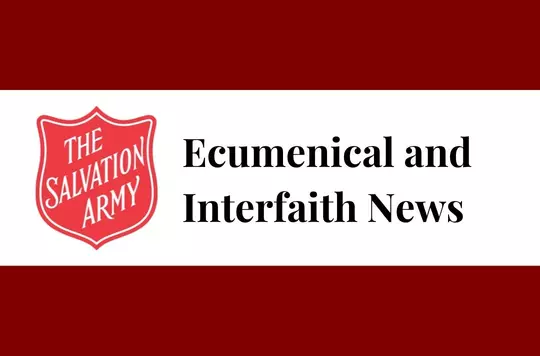19 January 2023
Churches together: 'I appreciate the Army’s global connection'
Lieut-Colonel Jonathan Roberts
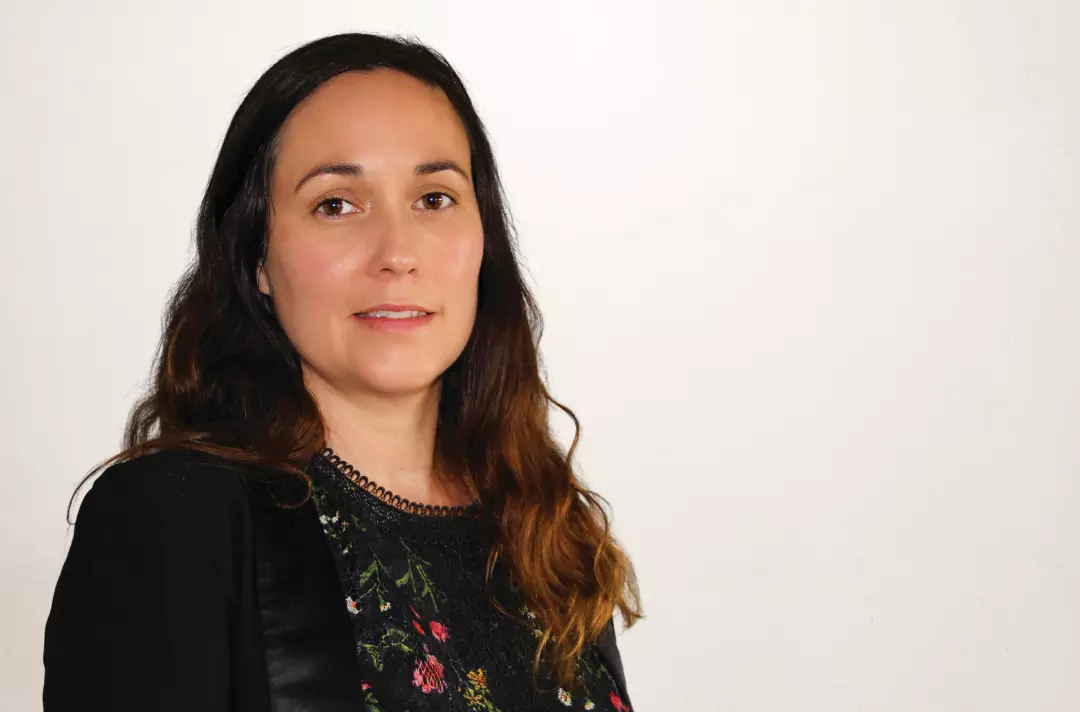
Dr Nicola Brady tells Lieut-Colonel Jonathan Roberts about her role as general secretary of Churches Together in Britain and Ireland.
During this Week of Prayer for Christian Unity (18–25 January), many churches have been using material provided by Churches Together in Britain and Ireland (CTBI) to support their prayer and reflection. But that’s just one element of CTBI’s work.
‘We create space for inter-church engagement on a British-Irish basis and work closely with the national ecumenical bodies in England, Ireland, Scotland and Wales,’ explains Dr Nicola Brady.
‘We aim to add value to their work, helping to share the learning from that, providing additional resources and raising the profile of their work in the public sphere.
‘There are also issues that cross national boundaries that are worth addressing from a British-Irish perspective. So, we have had good engagement around climate justice and our response to people who arrive seeking asylum. Other major strands of our work include interfaith dialogue and racial justice. Racial Justice Sunday is a longstanding event in the Church calendar, for which CTBI contributes the resources.
‘CTBI also creates opportunities for senior church leaders across Britain and Ireland to join together. That was valuable during the Covid-19 pandemic, when churches were facing unprecedented challenges. Out of that we were able to issue a call to prayer, which united people across the different jurisdictions.’
CTBI’s work has an international dimension, including supporting a distinctive British-Irish contribution to global ecumenical forums such as the World Council of Churches and the Conference of European Churches.
‘There is value in thinking together about what we want to say in these spaces and to raise the questions that we want to ask with a common voice so that we get better engagement around the issues that are priorities for us,’ Nicola says.
‘One of the things that we’re best known for is adapting the international material for the Week of Prayer for Christian Unity. This reflects the fact that there’s a shared culture on these islands and shared experiences to draw on that can help to contextualise the material.’
This year, the material is themed Be-Longing: Praying for Unity Amidst Injustice and reflects on how to pray for Christian unity when Christians are part of unjust structures. It invites churches to pray together for unity and, in particular, acknowledge institutional racism, which contributes to division and prejudice within the Church as well as in society.
Nicola’s background and experience provide a good foundation for her role with CTBI. Growing up in a heavily militarised border area of Northern Ireland during the Troubles, she was used to seeing military helicopters land in the fields behind her family’s house and encountering soldiers while out walking the dog.
‘Faith was really important in our family,’ she affirms. ‘It was my grandparents who instilled that deep sense of faith at the heart of the family. They encouraged us to have conversations around what we were seeing and hearing, and what it meant to love our neighbour in those circumstances.’
After completing her PhD in the field of church and political history, Nicola worked for the Irish Catholic Bishops’ Conference, heading up the Council for Justice and Peace.
‘It took me all over Europe looking at the work the Church is doing around peace and reconciliation,’ she recalls. ‘If you’re serious about doing that in a church context, inter-church relations are crucial. It was in the ecumenical work that I found an area that was so hope-filled and life-giving, yet so underdeveloped and with huge potential.’
In 2016 Nicola became the general secretary of the Irish Council of Churches before joining CTBI in January 2022. She explains what her CTBI role involves:
‘There are different strands to it. You have the typical CEO elements – the day-to-day running of the charity, management of the staff and working with trustees to ensure good governance. Then there’s the strategic piece – working closely with member churches and our partners in the national ecumenical bodies, listening to their concerns and designing a work plan that responds to them. A third strand is to be an ambassador for CTBI and make the work of the churches together visible in all sorts of spaces – whether that’s the major events of individual member churches or events organised by civic or political leaders.
‘During the first year I’ve worked closely with the trustees and staff to get a sense of our existing work and the major challenges and opportunities that our member churches can work on together. We have put together a draft strategy with five priority areas: strengthening ecumenical relationships across Britain and Ireland; working together for mission and the common good; facilitating dialogue on Church, nationhood and identity; working for global peace and justice; and modelling servant leadership.
‘Now the focus is on engaging with our member churches about what that will look like in terms of our work plans and how we support them. CTBI really exists to help churches to do things together. Hopefully, in doing so, we’re not only deepening the relationships between them but also making the work we do together more visible as an active Christian witness.’
One of those member churches is The Salvation Army, and Nicola speaks positively about its ecumenical involvement.
‘My experience working with The Salvation Army goes back to my time in the Catholic Bishops’ Conference,’ she says. ‘I worked closely with Salvation Army representatives, particularly around our advocacy on poverty and income issues. I valued their insights and experience, and the Army’s deep commitment to improving the lives of people living in poverty.
‘When I moved to the Irish Council of Churches, where more of the work was in the area of peace and reconciliation, what struck me was how the Army managed to have a presence and connections in every community and move across boundaries in a way that others had not managed to do.
‘Now at CTBI, one of the things I’ve appreciated is The Salvation Army’s global connection. Bringing that perspective to the conversations around issues such as migration and climate justice, as well as the nature of ecumenism and the vision for our ecumenical relations is so valuable.
‘I hope CTBI is able to support members of The Salvation Army in their work and lighten the load through fellowship, resources and ideas, and through creating the space for reflection that we all need from time to time.’
Written by
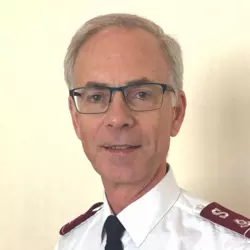
Lieut-Colonel Jonathan Roberts
Territorial Ecumenical Officer, THQ
Discover more

As the Week of Prayer for Christian Unity invites us to consider racial injustice, Lieutenant Nazia Yousaf encourages us to be inclusive.
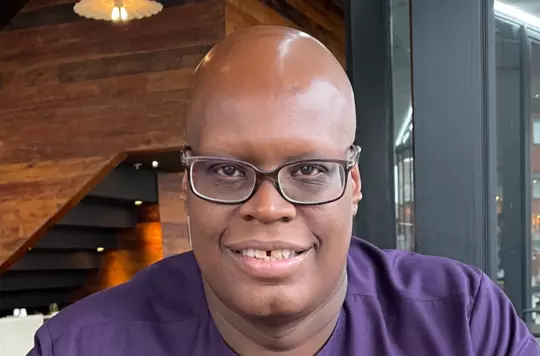
Lieut-Colonel Jonathan Roberts asks Mike Royal about his new role as general secretary of Churches Together in England.
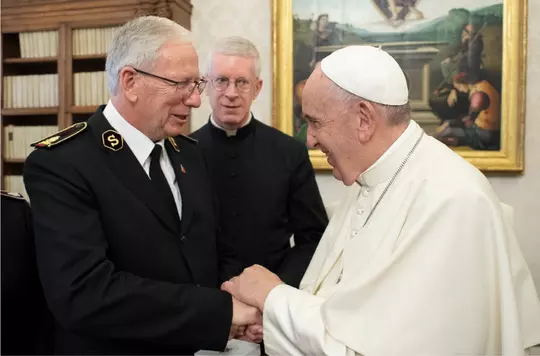
Supporting and developing the ecumenical and interfaith work of The Salvation Army.
